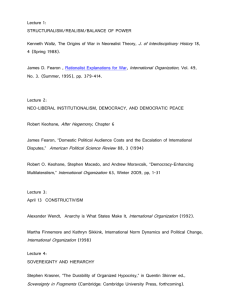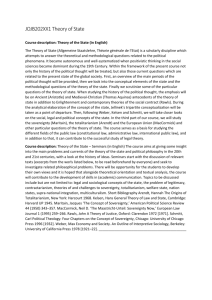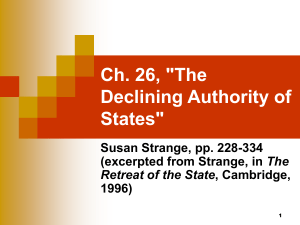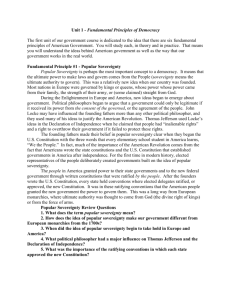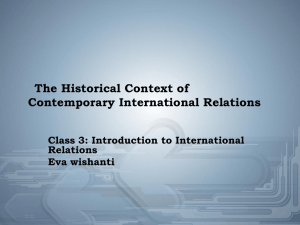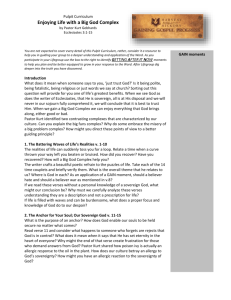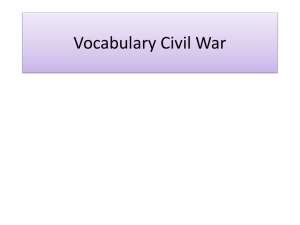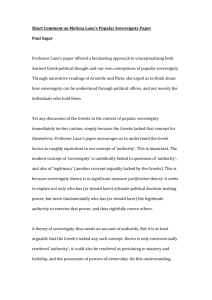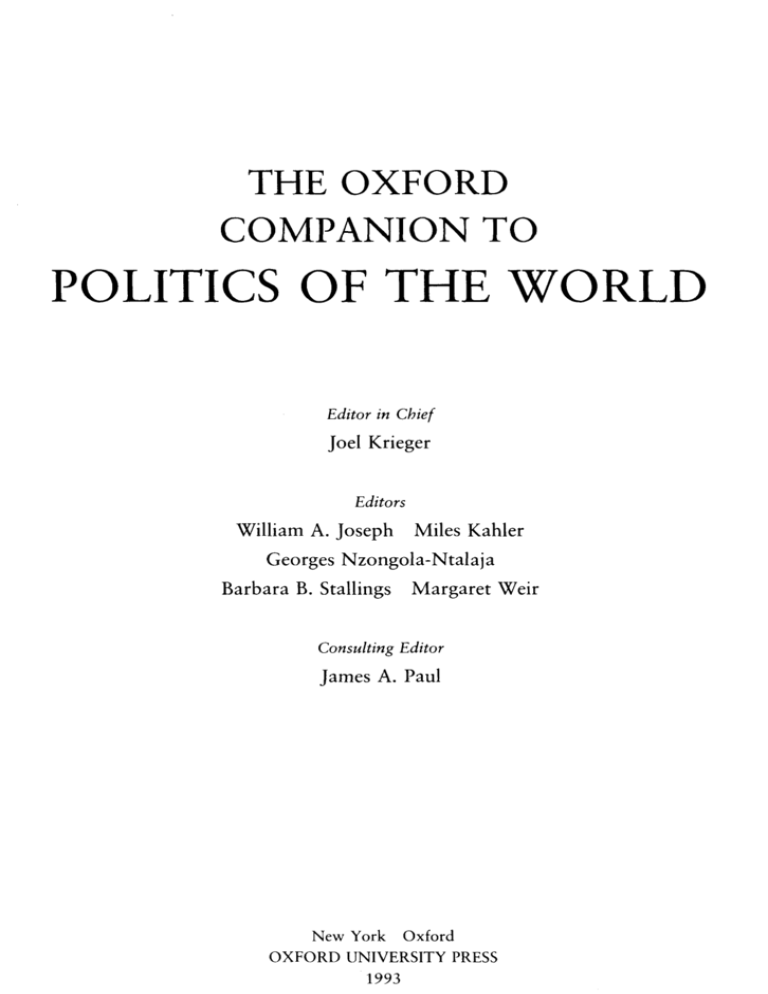
THE OXFORD
COMPANION TO
POLITICS OF THE WORLD
Editor in Chief
Joe1 Krieger
Editors
William A. Joseph
Miles Kahler
Georges Nzongola-Ntalaja
Barbara B. Stallings
Margaret Weir
Consulting Editor
James A. Paul
New York Oxford
OXFORD UNIVERSITY PRESS
1993
OXFORD UNIVERSITY PRESS
Oxford New York Toronto
Delhi Bombay Calcutta Madras Karachi
Kuala Lumpur Singapore Hong Kong Tokyo
Nairobi Dar es Salaam Cape Town
Melbourne Auckland Madrid
and associated companies in
Berlin Ibadan
Copyright © 1993 by Oxford University Press, Inc.
Published by Oxford University Press, Inc.,
200 Madison Avenue, New York, New York 10016
Oxford is a registered trademark of Oxford University Press
All rights reserved. No part of this publication may be reproduced,
stored in a retrieval system, or transmitted, in any form or by any means,
electronic, mechanical, photocopying, recording, or otherwise, without
the prior written permission of Oxford University Press.
Library of Congress Cataloging-in-Publication Data
The Oxford companion to politics of the world / Joel Krieger,
editor in chief; William Joseph . . . let al.], editors;
James A. Paul, consulting editor.
p. em. Includes bibliographical references and index.
ISBN 0-19-505934-4
1. Political science-Encyclopedias. 2. World politicsEncyclopedias. I. Krieger, Joel, 1951JA61.095 1993
320' .03-dc20 92-25043 CIP
Printing (last digit): 9 8 7 6 5 4 3 2 1
Printed in the United States of America
on acid-free paper
SOVEREIGNTY
851
nomic integration. For example, at the 1991 summit ~n of tbe state. According to most influential
of the "Organization of African Unity (OAU) Afrilines of interpretation, sovereign states remain the
can leaders signed a treaty committing the continent
primary political actors in international society, alto the establishment of the African Economic Comthough in a condition of relative decline as compared
munity (AEC), to be achieved in stages over the next
to international instit.l!!i9ns, transnational corporate d . \
three decades. Among current Third World ecoand financial actQfs, and l;Qnsnational citizens' as-.
~
nomic integration associations are the Economic
~ciations. To varying extents, these ODnstate actors I~
Community of West African States (ECOWAS), the
are controlled by sovereign states, and cannot be
*Southern African Development Co-ordination
properly regarded as completely independent actors.
Conference (SADCC), the Preferential Trade Area
For instance, only sovereign states are eligible to
for Eastern and Southern African States (PTA), the
become full members of the UN and most other
Maghreb Union, the *Association of Southeast Asian
important international organizations.
Nations (ASEAN), the "South Asian Association for
In origins and evolution, sovereignty is definitely
Regional Cooperation (SAARC), the Gulf Coopera Western concept, and was not shared by other
ation Council (GCC), the Latin American Integraregions until this century. (Certain non-Western partion Association (LAIA), and the Caribbean Com- .allels do exist, however.) In contemporary discusmunity (CARICOM).
sion, the concept of sovereignty is accepted as an
indispensable term in both academic and diplomatic
It deserves reiterating that regardless of the clear
and widespread commitment among Third World
discussions of political life throughout the world. Its
countries to integrate their economies and to pursue
importance is confirmed in Marxist, realist, and
other aspects of South-South cooperation, major
liberal political discourse, but the tan~e of usage
varies wigely, reflecting differences in "ideology and
obstacles have to be confronted. Increasing ecopolitical priorities.
nomic differentiation within the Third World is
making questionable some of the central assumpThe very centrality of sovereignty ensures it~­
tions underlying South-South cooperation. It is be- .tested character. In each setting, meanings are atcoming clear, for example, that the trade of the
tributed to sovereignty that -.accord with the intermore industrialized Third World countries (the Reg!eter's prokft. There is little neutral ground wh~
public of Korea, Singapore, Brazil) with the majority
it comes to sovereignty.
It is possible, of course, to throw one's weight
of primarily agricultural and mineral-extracting developing economies is often as unequal as the Northbehind a particular definition or to obscure the
South trade it is replacing. The heyday of Southdifficulty of providing a definition that is at once
South commitment may also have passed. There
clear and authoritative. Surely, some definitions are
appears to be a resigned but growing sentiment
more influential than others, and to some extent,
among many Southern states that in the current era
there exists a mainstream tradition with a distinof global economic and political realignments, inguished roster of adherents. This lineage can be
creasing protectionist pressures, and European and
traced to the classical works of Machiavelli, Bodin,
North American economic integration, continued .J:::!Q£bes,~e, Rousseau, and ~m, and was
*dependency on the North is to be preferred to the
carried forward by such thinkers as Max *Weber,
danger of becoming totally marginalized in the
Hans Morgenthall,_Bertrand deJouv~!1al, F~H. Hinevolving world economic and political order.
~y, and(tIedley~espitethis corpus of distin(See also AFRICAN REGIONAL ORGANIZATIONS;
guished scholarship, sovereignty has a history of
INTERNATIONAL DEBT; LATIN AMERICAN REGIONAL
cQ.nceptual migration. Early usage, perhaps most
ORGANIZATIONS; NORTH-SOUTH RELATIONS; PRO- prominently in .lean Bodin's great work, Six Books
TECTION; TECHNOLOGY TRANSFER.)
o1.a Commonwealth (l5?£), was almost exclusively
devoted
to state/society relations, the interual diBeverly May Carl, Economic Integration among Develop!!!ensions
of sovereignty. The doctrine of sovereignty
ing Nations (New York, 1986). Jerker Carlsson and Timothy M. Shaw, eds., Newly Industrializing Countries and
provided a way of locating the ~nter of authority
the Political Economy of South-South Relations (New York,
in relation to domestic conflict, and, in the end, was
1988).
a means to uphold the claims of the state as agaiI1stl
HASHIM T. GIBRILL
...rival feudal and ecclesiastical claimants. The state
became "~eign" because it generally succeeded
SOUTH YEMEN. See YEMEN.
in u..l2.holding this final power of d~n, or as later
put so ""influentially by ~er, because the state
enjoyed a monopoly over the legitimate use of "force,
,SOVEREIGNTY. A concept central to modern political thought, sovereignty's importance is bound
Sovereignty in early modern Europe was a secularup with specifying the essential character of the ,gjng terminology that reflected the decline·of unit,gti,torial "state. Sovereignty, a complex and someersalist religious~rity and actively encouraged
what contested conception, combines a description
belief i t e terr rona su remacy 0 testate.
Hobbes exten ed these aspects of sovereignty in ,.
of attributes with various emotive concerns for or
Leviathan (1651), interpreting sovereignty as a staagainst limitations on the internal and external ~-
_$
r
852
SOVEREIGNTY
tus, conferring upon the state an absolute prerogative to impose its will via liLw on civil society, an
authority derived from a hypothetical social contract
that overcame the ravages of life in a state of nature.
The people in any society were, in effect, protected
by the sovereign against their own aggressive nat~, but in exchange relinquished much of their
freedom to obtain the order and serenity of a welladministered civil society.
This Hobbesian view of sovereignty was challenged by John Locke, among others. Locke feared
much of what Hobbes favored. If human nature was
as flawed as Hobbes believed, then it would be a
disastrous error to concentrate authority in the state,
or in any single place. Locke, although more positive
about human nature, was concerned with establishing a government as clear about the limits of its
authority as about its extent. It is from Locke, and
Montesquieu as well, that we owe ideas about the
"separation of the powers of government, notions
of checks and balances, and, most of all, the idea
that citizens enjoy certain inalienable "rights which,
if not upheld, lead finally to a right of *revolution
that inheres in the citizenry. For Locke the locus of
sovereignty was suspended somewhere between the
state and society, a constitutionalist nexus that has
become associated with the in:ner nature of legitimate government at the level of the sovereign state.
So conceived, sovereignty is compatible with citizen
rights and the accountability of government and
officialdom, including the head of state.
Indeed, some formulations of sovereignty, tracing
their lineage to Rousseau, especially those imbued
with democratic ideology, go much further. They
locate sovereignty in civil society or in the people,
giving rise to the terminology of popular sovereignty
and an associated enthusiasm for the will of "the
people." This line of thinking underlay the radicalism of the French Revolution. At least rhetorically,
Abraham Lincoln endorsed such a view of sovereignty when he spoke of government "of the people,
by the people, for the people."
Whether or not the state is sovereign, or how to
construe sovereignty in relation to 3,vil sociery, is
no longer an important focus of debate except when
it comes to *foreign policy. Domestic controversy
about governance has shifted its ground: the key
concerns now revolve around the way the state is
constituted, especially relations between the center
and other administrative units, and the modes by
which governing authority is constrained and held
to account. In this regard, the idea of sovereignty as
such has been generally displaced in political discourse by an emphasis on rights and duties, by
arguments about the nature of "democracy, and by
discussions of how to maintain political and economic independence in relation to outside forces.
One partial exception to this generalization has to
do with state building in the non-Western world as
a preoccupation in the immediate postcolonial pe-
riod. Especially in Africa and the Middle East, the
idea of making the state truly "sovereign" and upholding "sovereign rights" retains relevance as a
central project of both governmental and oppositional forces.
Sovereignty as a basic idea and ideal in "international relations persists. Implicit in discussions since
Machiavelli and Hobbes is the conviction that the
state is the ultimate arbiter of its own fate in relation
to the outside world. The clash of sovereign wills in
international life gives rise to ceaseless conflict, as
scarcity in relation to relative power and prestige,
as well as with respect to resources and markets,
leads to fierce competition among states, giving international relations its zero-sum history and reputation, and accounting for the prominence of "war.
Because there is no state beyond the state-no
superstate-there is no human agency capable of
establishing a shared morality or an effective legal
order. Each state is "sovereign" in international
society, a law unto itself. By and large, such formulations of sovereignty in international relations
have been associated with realist thinking, which
tends to regard law, morality, and conscience as
irrelevant, or of marginal relevance, to the external
conduct of states.
Despite the continuing prevalence of *realism as
the approach of choice among diplomats and academic specialists, conceptual and policy tensions
exist, and are mounting. For several centuries the
states system has needed to endow agreements among
its sovereign members with reliability. Sovereignty,
if carried too far as a guide to behavior, undermined
the reliability of mutually beneficial interaction among
distinct states, whether the subject matter was diplomacy, tourism, or commerce. *International law
arose to regulate such relations among states, and
has expanded steadily over time in response to the
growing complexity of international life. But an
effective international law is not easily reconcilable
with con;;ptlOns(;f sovereignty that underlie realist
thought about international relations. Realist thinking erodes the authority of treaties as binding obligations of states and casts doubt upon the rules
protecting foreign diplomats and citizens.
The recent emphasis on the international protection of "human rights is a particular challeng,e to
overei ty, implying that a state is not territorially
supreme even with respect to the manner in which
a government treats persons resident within its
boundaries. Such challenges to the conventional understanding of sovereignty arise from both normative and functional pressures. The experience of,Nazi
persecution of the Jews and the disclosures about
the *Holocaust after World War II generated a
Political consensus that the internal relations of state
and society were no longer a matter exclusively
) within domestic jurisdiction, but had become a subject of legitimate international concern under certain
specified conditions of abuse. This consensus has
----
SOVEREIGNTY
been reinforced by the rise of it:!fl.uential grass-root~
and .transnational n(mgovernmental organizations
dedicated to the promotion and protection of human
righ~.
Ong functional level, interdependence anWalizatiOii1ave made it impractical to view the world
as consisting of territorial units each exerting supreme authority within its borders, but not elsewhere. T echn~o~ical capacity gives many states the
possibility of ~peratjng beyond boundaries, including ..~e. ~n activity has long been a feature
of international relations. Protecting ehe.elobal commons against filvjronmental decay is widely acknowledged as taking precedence over a purely
territorial conception of authority,'"as is the complementary need to protect the health and well-bei~g
of tgritoria! communities against damage from~...tr..aterritorial toxic releases.
A second type of conceptual tension is also of
recent origin. Sovereignty and sovereign rights are
emphasized as a means to protect the weak again1it
tQ.e stron.$, yet the notion of sovereignty a~ng
the~beyond accountability has been relied upon
by the.sssang to impose their will on the weak. The
UN Charter illustrates the tension in theory and
practice. In Article ~(1) the principle of "s~gn
equ.a\ity" is endorsed, and Article 2(7) affirms that
even the UN is bound to respect the ''<~tic
jurisdicyon" o~s; thus territorial supremacy is
privileged over theynforcement of international obligations. Yet the ~harter, especially as combined
with UN practice, undertakes to save succeeding
generations from the scourgt:.- of. war, to- prom"'ote
human rights, and to uphold the principle of "selfdetermination.
Recent trends in international relations are contradictory and confusing. All states, including the
most powerful, give lip service to ideas of sovereiKn
equ..~lity, noninterven' on, and resl2~t for interna~aw. Yet tee perience of international relations includes the tl\!me of the strong exerting their
will upon the weak,' of repeated interventions, aggressive wars, and of indirect penetration of sovereign territory by way of capital, "diplomacy, propaganda, and culture. Even if a few states can still
defend their territory against an invading army, not
even the most powerful can protect its people and
cities against a devastating surEEise attack by guided
~s, and none can ,control the flow of images
an~s that shape human tastes and values. The
globalized "presence" of ~na, McDonald's,
.
use make a mockery of sovereignty
as exclusive erritorial control. A few governments
do their best
insulate their populations from such
influences, but t eir efforts are growing less effective
and run counter to democratizing demands that are
growing more difficult to resist.
There have been many attempts in the history of
political and legal thought to reconcile these conceptual and operational tensions between sover-
853
eignty as an idea and law as a source of constraint
on the behavior of governments. Even...B.QQin, the
seminal modern theorist of sovereignty, conditioned
his theory of sovereignty on an acceptance of the
embedded applicability of natural law to the affairs
of .srate. Jurists and others have written about notions of "auto-limitation" as inherent in sovereignty,
or that sovereign authority can be flexibly redirected
to satisfy state interests. Yet in the end such attempts
at reconciliation seem more ingenious than convincing. Doubt persists, and properly. The fundamental
claim olsovereigIlty is its emphasis on unrestricted-x
.&Qvernmental authority within territorial bouruj~. If such authority exists, then wider obligations
of the state are problematic. If such authority is
denied, then sovereignty itself seems abridged or
qualified. Indeed, if the state no longer is entitled to
exercise such authority or fails to do so in practice,
then it becomes misleading to retain sovereignty as
a d~criptive term.
Undoubtedly, sovereignty will continue to be used
in the public discourse of international relations for
the foreseeable future. It provides diplomats with a
hallowed concept by which to carryon political
debate, and it represents in a variety of situations
the ongoing struggles of a given people for selfdetermination and independence. Nevertheless, its
continued use in academic work seems more questionable, except possibly i
e setting of describing
"contendin notions of
verei n ." Interdepen.,dence, and the inter enetr i
of domestic and international politics, the moQilit:y and globalization
of capital and information, and the rising influence
of ttflnsnational social moyem~nts and Qrganizations
are among the factors that make it anachronistic to
analyze politics~f territorial supremacy contin'u~d
to be a generaliz condition or a useful fiction. In
particular, sovereignty, With Its stress on the inside/
outside distinction as between domestic and1i1te"rnational society, seems more misleading than illuminating unJer current conditions. If the role of
political ideas in academic pursuits is to clarifyJ
tendencies and patterns, then the viability of sovereignty as concept and project seems increa~ly
dubious. When the polemical function of a concept
outweighs its empirical referent, it may be time to
consider scuttling the concept itself, or at least severely circumscribing its use.
(See also ENVIRONMENTALISM; INFORMATION SOCIETY; INTERNATIONAL SYSTEMS; INTERVENTION;
LEGITIMACY; NATIONALISM; TREATY; UNITED NATIONS.)
Harold J. Laski, Studies in the Problem of Sovereignty (New
Haven, Conn., 1917). Bertrand de Jouvenal, Sovereignty:
An Inquiry into the Political Good (Chicago, 1957).l:kdJ&y
Buill. The Anarchical Society: A Study of Order in World
fYolitics (New York, 1977). Hans Morgenthau, Politics
Among Nations: The str"uggle for Power and Peace, 6th
ed., edited and revised by Kenneth W. Thompson (New
York, 1985). F. H. Hinsley, Sovereignty, 2d ed. (Cambridge,
854
SOVIET-AFGHANISTAN WAR
U.K., 1986). David Held, Political Theory and the Modern
State (Stanford, Calif., 1989).
RICHARD FALK
SOVIET-AFGHANISTAN WAR. The invasion of
*Afghanistan on 27 December 1979 marked the
first use of the Soviet Red Army outside the territory
of the *Warsaw Treaty Organization (Warsaw Pact
countries). For nine years, the "Soviet Union deployed an army of 120,000 men to battle the Afghan
resistance, bringing death to more than a million
Afghans and forcing more than a third of the population to seek refuge in Iran and Pakistan. Yet it
failed to subdue the Afghan people; on 14 April
1988 in Geneva, the Soviet Union agreed to withdraw its troops from Afghanistan. The withdrawal
was completed on 15 February 1989, presaging the
end of Soviet "hegemony in Eastern Europe. An
assessment of Soviet reasons for invading Afghanistan will have to await the release of documents
from the period, but the impact of the invasion on
international and regional relations is clear. Sports
were the first casualty of the invasion, as many
countries boycotted the 1980 Moscow Olympics. A
more enduring loss was the shattering of the carefully nurtured image of the Soviet Union as the ally
of the "Third World in general and the "nonaligned
countries in particular. Year after year, the UN
General Assembly became the arena where an everlarger number of countries voted for the withdrawal
of foreign forces from Afghanistan.
The invasion also deepened the already-existing
rift between the Soviet Union and China and paved
the way for further rapprochement between China
and the United States. Soviet-American relations
were severely strained. Allowing the SALT II treaty,
which had been signed but not yet ratified, to go
into abeyance, President Jimmy "Carter also imposed an embargo on the grain trade with the Soviet
Union. President Ronald "Reagan, while lifting the
embargo, embarked on an ambitious plan of military
buildup and increased U.S. support for forces engaged in regional conflicts against *communism and
the Soviet Union.
To help the Afghan resistance combat the Soviet
army of occupation, the Reagan administration reassessed its priorities in Southwest Asia. The United
States had lost is privileged position in Iran following the Islamic revolution of January 1979. Therefore, it turned to Pakistan, treating it as "frontline
state" against Soviet expansionism. General Zia of
Pakistan, who had seized power in a military coup
in 1977, was shored up with substantial economic
and military assistance. His country's role in sustaining the Afghan resistance was deemed vital, and
the Reagan administration hardly protested Pakistani efforts to pursue the development of "nuclear
weapons or the emergence of Pakistan as a major
center for drug trafficking. Displeased with the U.S.
posture in support of Pakistan, India drew closer to
the Soviet Union and refrained from condemning
the invasion of nonaligned Afghanistan.
Pakistan retained control of the resistance even
when financial support from the United States and
Saudi Arabia reached massive levels. The increase in
aid had come in response to the successes scored in
the field by the resistance, particularly after the
United States supplied it with Stinger ground-to-air
missiles in the summer of 1986. To preempt the
Afghan resistance from consolidating control Over
certain provinces, becoming a state within a state,
the Pakistani regime relied on its intelligence agencies to divide and rule. The strategy, however, backfired. When the Soviets withdrew their troops in
1989, the resistance was unable to offer a unified
leadership that could form a credible government.
Contrary to U.S. and Pakistani expectations, the
Soviet-backed regime in Kabul has been able to
maintain a precarious existence by presenting itself
as a nationalist force opposing Pakistani designs on
Afghanistan.
The emergence of Mikhail "'Gorbachev as leader
of the Soviet Union in March 1985 and the willingness of the Soviet leadership to end the "Cold War
were crucial to the disengagement of the Red Army
from Afghanistan. But the UN,played a critical role
in diplomatic negotiations, initiated in August 1981
and culminating, after twelve rounds, in the Geneva
agreement of April 1988. This agreement, however,
did not bring an end to the warin Afghanistan, as
the Soviet and U.S. governments were left free to
supply their Afghan clients with arms and weapons.
Today, Soviet troops are out of Afghanistan, the
Soviet empire in Eastern and Central Europe has
been dismantled, and the Soviet Union itself has
collapsed. But Afghans are still dying. The UN
secretary-general has spoken of an international
consensus for finding a political solution to the
conflict in Afghanistan. WheJ!her this consensus can
bring peace to Afghanistan and prosperity to its
people remains to be seen.
(See also SINO-SOVIET RELATIONS; SOVIET FOREIGN POLICY; STRATEGIC ARMS LIMITATION TREATIES.)
Henry Bradsher, Afghanistan and the Soviet Union (Durham, N.C., 1983). Olivier Roy, Islam and Resistance in
Afghanistan (New York, 1986).
ASHRAF GHANI
SOVIET DISSENT. For nearly two decades, beginning in the mid-1960s, Soviet "human rights activists demanded a dialogue with their own government
over the country's growing social, economic, and
political problems. Dissent involved a broad range
of nonconformist opinion. Nationalists in several
republics pressed Soviet officials for cultural autonomy for their peoples. Religious activists wanted
freedom to practice their faiths. Many Jews petitioned for the right to emigrate. Human rights activists in Moscow and Leningrad defended all these


